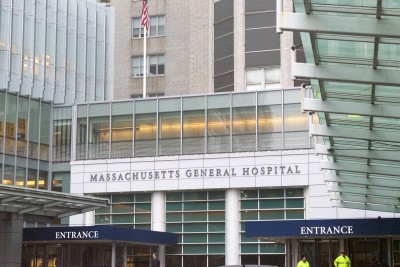
After a unanimous vote Thursday, the Massachusetts Hospital Association Board of Trustees announced that it would join an ongoing list of Massachusetts organizations that oppose the regulation and taxation of marijuana in the commonwealth, according to a Thursday press release.
The release also stated that the MHA is opposing the bill due to a possible increase in public health risks and the inevitable increased accessibility of marijuana to the youth in Massachusetts.
MHA President and CEO Lynn Nicholas said in the release that the legalization of marijuana has proven controversial for health care professionals.
“Massachusetts hospitals have always been at the forefront of promoting public health, and the question of whether our commonwealth should legalize recreational marijuana use poses a number of significant healthcare-related problems,” Nicholas said in the release.
Nicholas also said that the MHA is unwavering in its opposition to legalization of the drug.
“Clinicians and healthcare leaders from around the state have a clear message — this ballot question is the wrong prescription for Massachusetts,” Nicholas said in the release. “Based on the clear evidence and concern for our patients and our communities, the hospital answer to whether recreational marijuana use should be legalized in Massachusetts is a resounding ‘no.’”
The ballot measure, titled “The Regulation and Taxation of Marijuana Act,” would allow commercialization and government regulation of recreational marijuana.
“The purpose of this Act is to control the production and distribution of marijuana under a system that licenses, regulates and taxes the businesses involved in a manner similar to alcohol and to make marijuana legal,” the measure states. “Its intent is to remove the production and distribution of marijuana from the illicit market and to prevent the sale of marijuana to persons under 21 years of age by providing for a regulated and taxed distribution system.”
The act also includes the development of a cannabis advisory board “to study and make recommendations on the regulation of marijuana and marijuana products,” the measure stated. The board will not consist of government employees from the commonwealth.
Jim Borghesani, a spokesperson for the Campaign to Regulate Marijuana Like Alcohol, expressed strong opposition to the hospital’s decision.
“We don’t think it will happen at all,” Borghesani said. “We are confident Massachusetts voters will see past the stale, discredited arguments from the 1930s while they are considering a new approach for a substance”
According to an email from Gabrielle Farrell, a spokesperson for Boston Mayor Martin Walsh, Walsh is opposed to the legalization of marijuana.
Residents of Boston had mixed opinions on the regulation of marijuana in the Commonwealth of Massachusetts as a whole.
Lynne Begier, 41, of Back Bay, said Boston residents are likely to favor legalization.
“It’s understandable why the hospital wants to vote against the legalization of marijuana, but I don’t think that it’s the be-all-end-all,” she said. “I know it’s a topic of discussion here in Boston, and I think the residents are liberal enough to vote yes.”
Rebecca Nelson, 32, of Back Bay, said she supports the MHA’s decision.
“I don’t think [legalization] is a good idea, and I think the hospital has the right reasoning behind it,” she said. “I don’t want my kids to grow up surrounded by pot. I know that it’s inevitable that they’ll be exposed to it, but I don’t want it to be readily available any more than it is. Maybe decriminalized, but not available for recreational use.”
Vincent Lavigne, 22, of the South End, said he was surprised hospitals are not adapting to the use of marijuana for medicinal purposes.
“Everyone seems to smoke pot nowadays, especially here in Boston,” he said. “I’m actually surprised that the hospital denied it because of its medicinal uses. I feel like it would actually be beneficial to them, maybe make them some money.”
Kyler Sumter contributed to the reporting of this article.